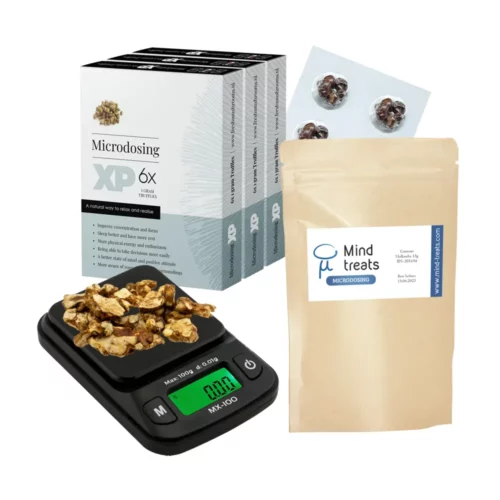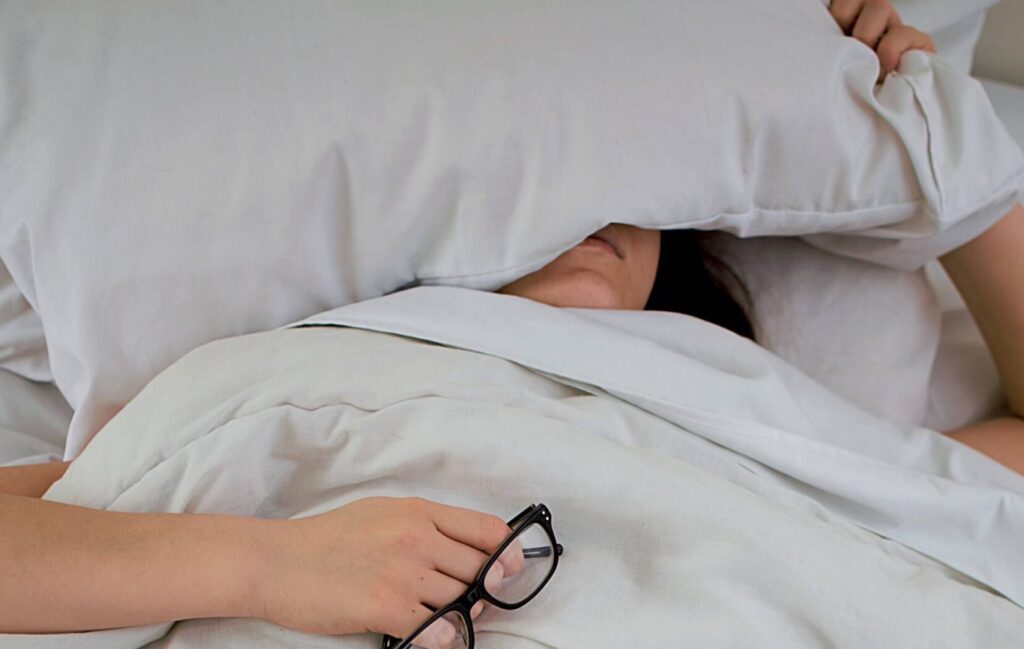Health, Psychedelics, Science
Exploring the Positive Impact of Psilocybin on Menopause
Menopause is a natural phase in a woman’s life. It can bring very uncomfortable symptoms and emotional challenges that can impact the quality of life, relationships and work. The conventional treatment is hormone replacement therapy (HRT), which also comes with a list of side effects. However, according to recent research, there might be an effective but extraordinary alternative: Psilocybin. Psilocybin is a natural psychedelic compound which can be found in certain truffles and mushrooms. Many women report positive and relieving effects on the sometimes overwhelming symptoms of the menopause. Besides experiencing better sleep quality, it eased anietxy and provided aid with depression. As a result, psilocybin helped to reduce overwhelming symptoms that come with the menopause and improved overall quality of life.
Alleviating Mood Swings and Depression
Improving Sleep Quality
The effect of psilocybyin on sleep quality might be linked to its impact on the brain’s Default Mode Network (DMN). It is a network of different brain regions that are associated with “I” or “Me” thoughts (self-referential thoughts) and overthinking. An overactive DMN is often connected to a wandering mind and symptoms of restlessnes and insomnia. Interestingly, psilocybin has the ability to reduce DMN activity in the brain – in other words, it lowers the volume of intrusive and recurring thoughts. A less active DMN might help to reduce depressive rumination and overthinking which may result in a calmer mind.
Easing Hot Flashes and Night Sweats
Hot flashes and night sweats are among the most bothersome and disruptive symptoms of menopause. They are affecting the quality of life and sleep of many women. There is anecdotal evidence to suggest that psilocybin may hold promise in alleviating some of these discomforts. While formal research is limited in this specific area, many users have reported that a single psilocybin session significantly reduced the frequency and intensity of hot flashes and night sweats.
It is known that psilocybin influences the serotonin system, which might be another potential menchanism behind the positive effects of this renowned psychedelic. Serotonin is a neurotransmitter, which is a chemical messenger that sends signals between nerve cells, muscles and glands. It is a key player in regulating mood, appetite and most importantly: sleep. Psilocybin’s effect on serotonin receptors might help stabilize temperature regulation and induce more restful sleep by promoting adequate melatonin levels. As a result, it is indirectly reducing the occurrence of hot flashes and night sweats which ultimately improves the quality of sleep.
Reducing Anxiety and Stress
Menopause, a natural stage in a woman’s life typically occurring around the age of 50, is characterized by significant hormonal changes. These changes include a decline in estrogen and progesterone production, leading to a host of physical and emotional symptoms. Among these symptoms, hot flashes, night sweats, mood swings, and increased stress and anxiety levels can be particularly challenging for women experiencing menopause. But according to most recent studies, psilocybin can offer promising support.
A randomized, double-blind, placebo-controlled study by Davis et al. in 2021, investigated the safety and efficacy of psilocybin-assisted therapy in treating symptoms of depression. He consolidated, that a single dose of psilocybin, combined with psychotherapy, resulted in significant improvements in mood, anxiety, and quality of life compared to the placebo group. This is a promising alternative for women that want to avoid hormone replacement therapy or other treatments that come with disencouraging side effects.
Conclusion
In recent years, there has been a growing interest in seeking alternative therapies to alleviate the discomfort and distress associated with menopausal symptoms. Including mood swings, depression, hot flashes, night sweats, sleep disturbances, anxiety, and stress. Especially for women who are not able or do not want to undergo hormone replacement therapy (HRT), it can be a greater difficulty to find relief. Psilocybin seems to be a promising alternative that may offer the long-sought relief.
The medical and scientific research of psilocybin and microdosing is still relatively young but shows already very intriguing and promising results. With the help of different communities more and more fields are being uncovered where psilocybin might offer support and help. Nevertheless, individuals considering psilocybin therapy should do so under the guidance of qualified professionals and in compliance with relevant legal and ethical guidelines.
Sources:
- Carhart-Harris, R. L., Bolstridge, M., Rucker, J., Day, C. M., Erritzoe, D., Kaelen, M., … & Nutt, D. J. (2016). Psilocybin with psychological support for treatment-resistant depression: an open-label feasibility study. The Lancet Psychiatry
- Ross, S., Bossis, A., Guss, J., Agin-Liebes, G., Malone, T., Cohen, B., … & Schmidt, B. L. (2016). Rapid and sustained symptom reduction following psilocybin treatment for anxiety and depression in patients with life-threatening cancer: a randomized controlled trial. JAMA psychiatry




